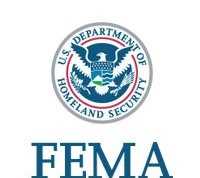WASHINGTON, D.C. – September 17, 2014 – (RealEstateRama) — The Federal Housing Administration is overhauling a long-held policy of charging extra interest payments on loans it insures to borrowers who have already paid off the principal debts on their mortgages.
FHA has permitted its lenders to charge borrowers a full month of interest when they sell or refinance a home, even if borrowers had paid off the mortgage weeks prior to the end of the month. As the Los Angeles Times explains, if borrowers went to closing on an FHA loan on Sept. 3, lenders would be allowed to continue to charge them interest through Sept. 30.
Growing FHA Problems
Rising FHA Costs Sideline Potential Buyers
Increase in FHA Fees Is Sinking Deals
JPMorgan Threatens to Stop FHA Loans
Beginning Jan. 21 of next year, new FHA mortgages will require lenders to collect interest only on the balance remaining on the date of closing for a home sale or refinancing. (However, sellers and refinancers who currently have FHA loans and expect to close before Jan. 21 likely won’t see much benefit from the new policy.)
The Consumer Financial Protection Bureau raised the issue with FHA last year, asking why FHA was allowing its lenders to collect post-payment penalties from borrowers at closing. FHA had argued that its bond investors, who purchase packages of insured mortgages, expected full-month payments of interest plus principal. FHA said that its lenders did charge borrowers slightly below market rates to help compensate for the post-closing payments.
However, critics argued that the policy was unfair to borrowers. The National Association of REALTORS® had lobbied against the FHA policy for more than a decade. NAR estimated that during 2003 alone, sellers and refinancers paid nearly $690 million in extra interest charges due to the policy.
In NAR’s latest Voice for Real Estate video series, learn more about what FHA’s policy shift means for the real estate industry, plus why we’re entering a “dangerous time” on Capitol Hill.
NAR President Steve Brown applauded FHA’s move to end the policy, which he says is “long overdue.” It should “result in cost savings for millions of Americans who rely on FHA-insured loans to purchase their homes,” Brown says.
FHA said it would look for other ways to recoup the revenue that it expects to lose by the policy change, but the agency maintains that it would continue “to offer consumers the same interest rates that they offer now” and not find a way to add an extra premium in to make up for the shortfall.
Source: “FHA to Ban Lenders From Charging Extra Interest Payments on Mortgages,” The Los Angeles Times (Sept. 7, 2014)













